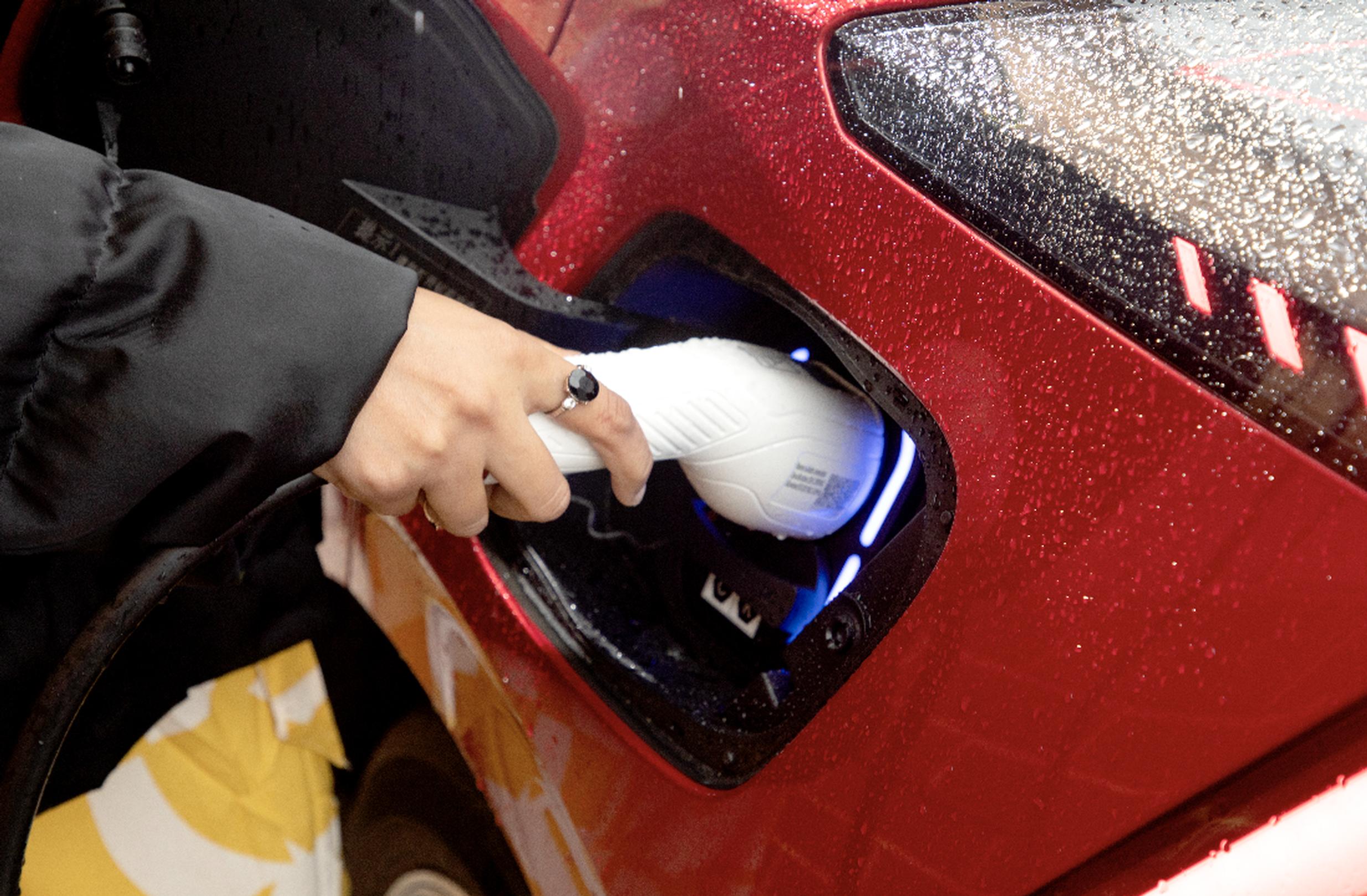

Cross-pavement charging products could help accelerate the EV transition by enabling more people to charge via their home energy supply and access cheaper rates.
However, a new report from Motability Operations reveals accessibility challenges with these products that could prevent many from using them.
With difficult and lengthy installation processes also discouraging adoption, the car leasing business is working with manufacturers to prioritise inclusive design and local authorities to improve installation processes.
Motability Operations is warning that inaccessible cross-pavement charging products and complex installation rules could stop people from switching to an electric vehicle, or end up pushing them towards far more expensive public charging.
With around four million UK households suitable for cross-pavement charging, these products could be a game-changer for drivers without driveways. But our research with Motability Scheme customers shows that many designs are unusable, and planning processes are often slow, costly, and complicated.
As approximately 50% of Motability Scheme customers and 30% of people in the UK lack off-street parking, to switch to an EV they must use the public charging network which can be up to 10 times more expensive than home charging.
Cross-pavement products offer a potential solution to this, allowing those who do not have a driveway to connect their car to their home over a pavement and do so in a way that doesn’t affect people needing to get by.
However, cross-pavement product testing with Motability Scheme customers has identified several issues that make many products unusable for disabled drivers. These are outlined in the firm’s new report, Home charging for all: Ensuring cross-pavement products are accessible.
Key concerns include:
In addition, some products can also create physical hazards for disabled people if cables or covers obstruct pavements.
Alongside challenges with accessibility, installation processes of cross-pavement products also present an obstacle as – to install a cross-pavement product – people must receive planning permission from their local authority.
This process can cost between £800 and £1,200 and requires significant effort from the individual to provide the council with the right information, including liability agreements; maintenance responsibilities; and local landscape information.
Rose Gee, Motability Scheme customer, said: “The idea to switch to an EV came from our son. He already had an EV and kept telling us how cheap and convenient it was to run. We started to look into charging options before we switched to an EV and decided on a home charger. The process with the council was long and difficult – we were passed between three different councils and the housing association. Once we got permission for a Gul-e, the installation was quick. Thanks to our EV specific tariff, charging at home costs us about £7 overnight for a range of 300 miles.”
According to the firm’s EV Transition Tracker, over a third (34%) of people agree they would be more likely to consider an EV if running costs were comparable to petrol or diesel vehicles. And with around four million UK households living in homes suitable for cross-pavement solutions, these products have the potential to allow more people to benefit from cheaper rates afforded through home charging.
To ensure the switch to EV leaves no one behind and that as many households can benefit from home charging as possible, Motability Operations is working with cross-pavement manufacturers to shape the design of these products.
Similarly, to tackle installation barriers, the firm is partnering with local councils that are planning cross-pavement trials. This includes Stoke-on-Trent Council, where Motability Operations is identifying drivers on the Scheme who could take part in the pilot, and funding the provision of chargers where the council approves a cable channel.
The organisation is also making recommendations for how planning processes could be simplified, including applicants being able to provide photographs of properties, rather than complete lengthy application forms.
Andy Broadfield, MD of Electric and Insurance at Motability Operations, said: "We welcome the Government’s investment, announced last month, for at-home charging solutions for those without driveways. This funding is a vital step forward to ensure thousands are not left behind as manufacturers shift production to electric.
However, if the transition is to work for everyone, the charging infrastructure must be accessible and readily available. That’s why we have worked with our customers to actively research and understand the barriers facing accessible cross-pavement charging products.
“Now, we are calling for further collaboration with cross-pavement product manufacturers and local authorities to help develop, and swiftly install, accessible solutions that help keep people mobile, now and in the long-term.”
Motability Operations runs the Motability Scheme, through which disabled people receiving a qualifying disability allowance can choose to exchange their allowance for a good value, accessible vehicle lease. The scheme thus plays an key role in supporting disabled people with accessing work, healthcare, education and training, keeping them connected and improving their chances of getting a job and staying in the workforce.
TransportXtra is part of Landor LINKS
© 2025 TransportXtra | Landor LINKS Ltd | All Rights Reserved
Subscriptions, Magazines & Online Access Enquires
[Frequently Asked Questions]
Email: subs.ltt@landor.co.uk | Tel: +44 (0) 20 7091 7959
Shop & Accounts Enquires
Email: accounts@landor.co.uk | Tel: +44 (0) 20 7091 7855
Advertising Sales & Recruitment Enquires
Email: daniel@landor.co.uk | Tel: +44 (0) 20 7091 7861
Events & Conference Enquires
Email: conferences@landor.co.uk | Tel: +44 (0) 20 7091 7865
Press Releases & Editorial Enquires
Email: info@transportxtra.com | Tel: +44 (0) 20 7091 7875
Privacy Policy | Terms and Conditions | Advertise
Web design london by Brainiac Media 2020